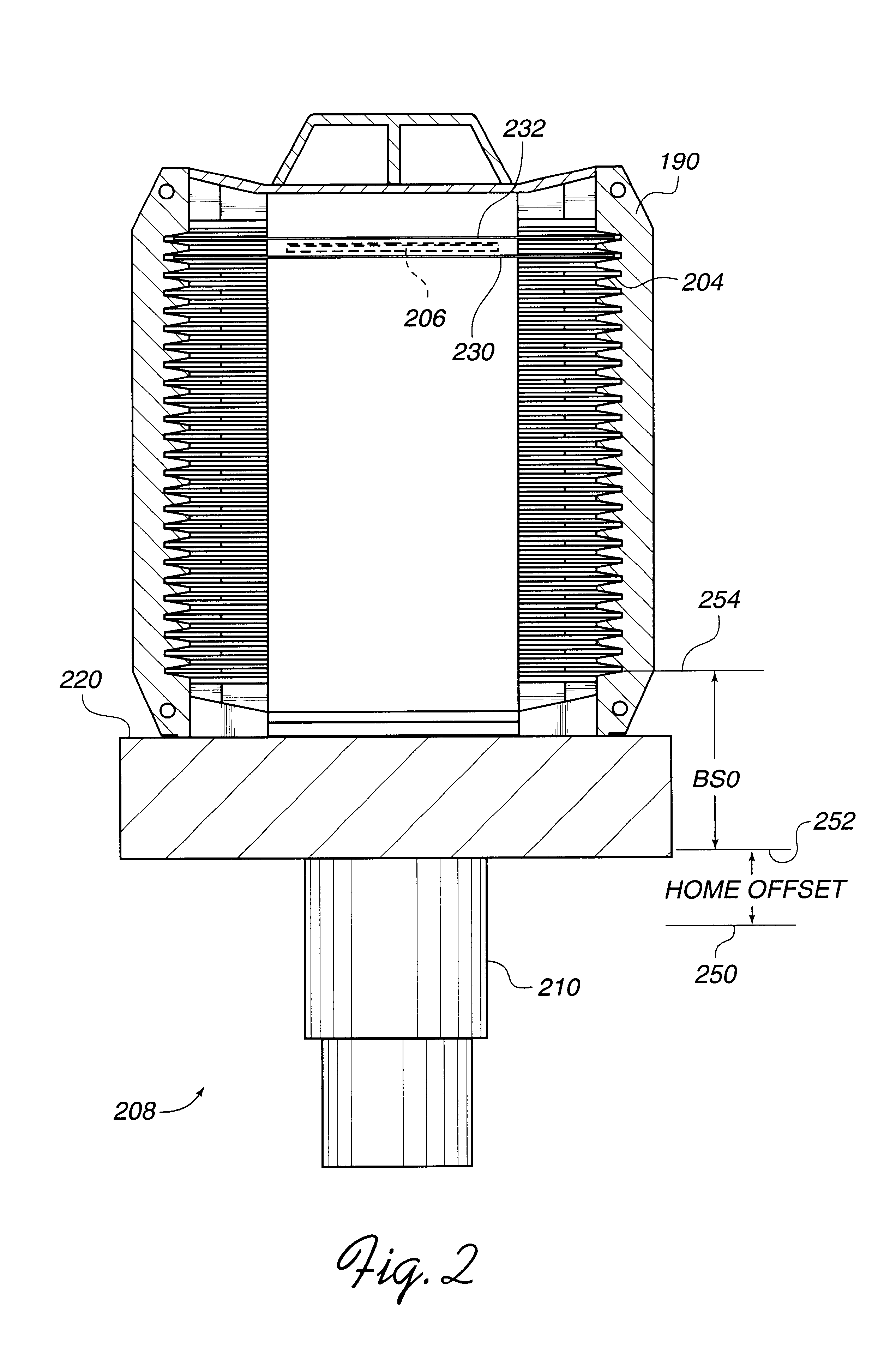Apparatus for alignment of automated workpiece handling systems
a technology for workingpieces and tools, applied in applications, manufacturing tools, instruments, etc., can solve the problems of affecting the accuracy of the workpiece blade alignment process, and many of the drawbacks of the tools used, so as to facilitate the accurate leveling of the workpiece blade and reduce the risk of accidental scratching and breakage of workpieces such as semiconductor wafers and display substrates.
- Summary
- Abstract
- Description
- Claims
- Application Information
AI Technical Summary
Benefits of technology
Problems solved by technology
Method used
Image
Examples
Embodiment Construction
***". At this time, the interface controller display 530 will display the raw distance values next to "blue", "yellow" and "red" labels for each laser's output. As explained in greater detail below, the outputs of the metrology cassette 410 laser sensors are sampled and averaged over a period of time sufficient to substantially cancel out noise and vibration effects.
The operator may now "zero", or calibrate the cassette alignment tool system 400 by pressing a button 532 on the interface controller 412, which is labeled "ZERO". In response, the system assigns the three distance values measured by the three laser heads to be the distance D.sub.REF between that laser sensor and the reference surface 520 for each laser head. In that this distance value for each laser is the "zero" distance, the displayed measurement values for each laser head, labeled "blue", "yellow" and "red", are set to indicate 0.000 as shown in FIG. 7. Calibration of the laser sensors is thus completed in a simple ...
PUM
 Login to View More
Login to View More Abstract
Description
Claims
Application Information
 Login to View More
Login to View More - R&D
- Intellectual Property
- Life Sciences
- Materials
- Tech Scout
- Unparalleled Data Quality
- Higher Quality Content
- 60% Fewer Hallucinations
Browse by: Latest US Patents, China's latest patents, Technical Efficacy Thesaurus, Application Domain, Technology Topic, Popular Technical Reports.
© 2025 PatSnap. All rights reserved.Legal|Privacy policy|Modern Slavery Act Transparency Statement|Sitemap|About US| Contact US: help@patsnap.com



